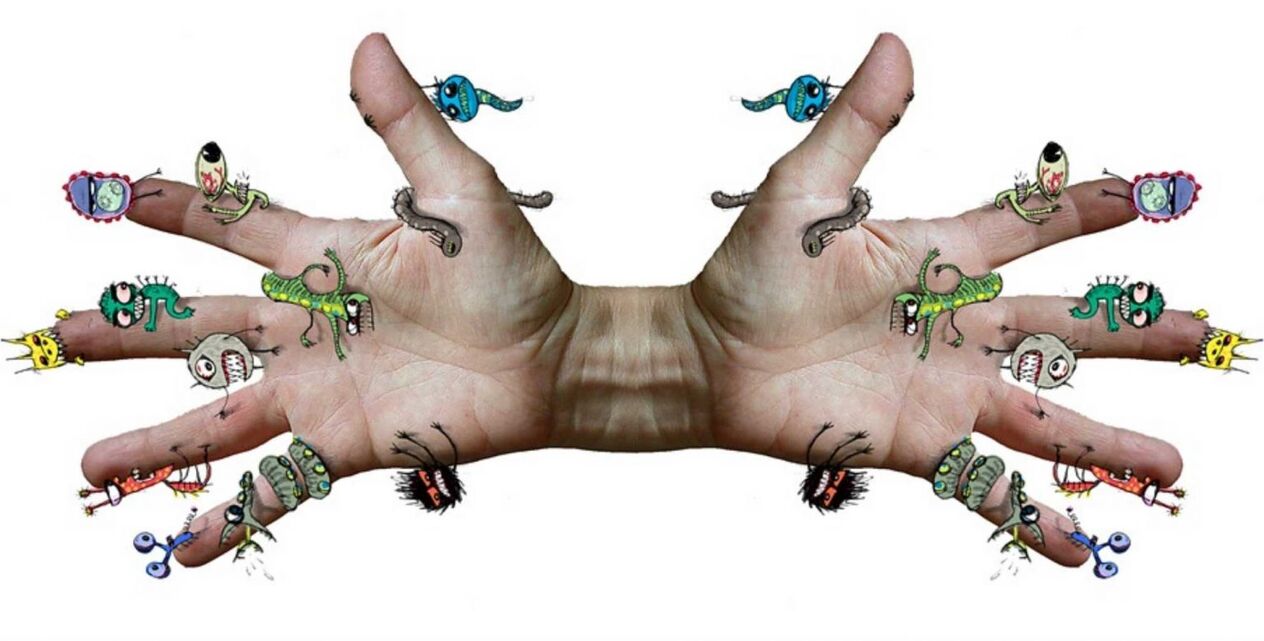People consume food to increase the energy they expend in the process of active life. But you can imagine that a human being often becomes an excellent target for the simplest living organisms. Uninvited "tenants" can use the landlord as a living container for a long time, providing food, housing and comfortable conditions. If the parasites live in the human body, the symptoms of infection can be a cold, gastritis, pneumonia, etc. can be easily confused with the symptoms of certain diseases such as.
The most common symptoms of parasitosis
Parasitic life forms exist and develop at the expense of man, and his health is irreparably damaged, because the lion's share of nutrients and vitamins goes to one of the internal organs: the "invader" who modestly hides in the intestines, lungs. , heart, liver, joints, etc. The destructive effect depends on the length of stay of the migrant and his "appetite", it is believed that parasitosis is the root cause of diseases such as diabetes, pancreatitis, bronchial asthma, cholecystitis, atopic dermatitis.

Symptoms of parasites in the human body:
- disorders of the gastrointestinal tract (constipation, flatulence, diarrhea, irritable bowel syndrome, localized pain in the stomach);
- disorders of the endocrine system (weight fluctuations, underweight or overweight, hormonal imbalance);
- dental diseases (stomatitis, periodontal disease);
- problems with the musculoskeletal system (pain in the joints, muscles - osteoarthritis, arthritis);
- neurological disorders (irritability, insomnia, unexplained anxiety, depression);
- allergic reactions and associated skin problems (increased levels of eosinophils, immunoglobulin E, allergic rhinitis, eczema, urticaria, papillomas, dermatitis);
- respiratory diseases (bronchial asthma, pneumonia);
- impaired hematopoiesis, decreased vascular permeability, anemia (critical decrease in hemoglobin);
- chronic fatigue and decreased immunity (often mild ARVI, tonsillitis, apathy, low blood pressure, weakness and poor memory);
- oncological diseases;
- cosmetic problems (cracked heels, dry skin, brittle nails, pale hair, seborrhea, baldness);
- gynecological and urological diseases (in women: menstrual disorders, discharge, vaginal candidiasis, fibroids, mastopathy; in men: prostatitis, urolithiasis);
- bruxism (grinding of teeth), snoring.
Although we know the signs of parasites in the human body, it is difficult to diagnose parasitosis without a thorough examination (three scratches and blood tests). Symptoms of parasitic infestation are the result of strong activity of the "guest", intoxication of humans with waste products of helminths, chronic irritation of the affected organs, and the immune system can no longer cope with the disease. itself.

Features of the course of parasitosis in children
Children, unlike adults, are more prone to parasitic infections in their daily lives. Infection usually occurs during walking (after contact with sand or soil), close contact with sick animals or swimming in open water. Symptoms of parasites are usually difficult to detect in children, and primary infection and helminth colonization occur imperceptibly. Gradually, the amount of toxins in the blood increases, the child's body is poisoned by helminth waste products, which manifests itself in the form of decreased immunity and chronic diseases, allergies of unknown etiology, dysbiosis, physical exhaustion.
The following indirect signs of parasites can be distinguished in children:
- poor appetite or, conversely, greed, passion for sweets;
- regular headaches accompanied by nausea;
- rapid fatigue that occurs;
- lack of daily bowel movements (constipation);
- vomiting, belching, bad breath;
- pale skin, "blue" under the eyes;
- irritability, aggression, whimsy;
- hyperactivity, especially in the evening;
- bad (intermediate) night's sleep associated with bending, groaning, bruxism;
- irritation or redness in the genital area.
Symptoms of infection with protozoa parasites should be used as a "beacon" for a complete examination. Timely and professional diagnosis allows to completely cure a parasitic infection with minimal damage to the health of the body.






































